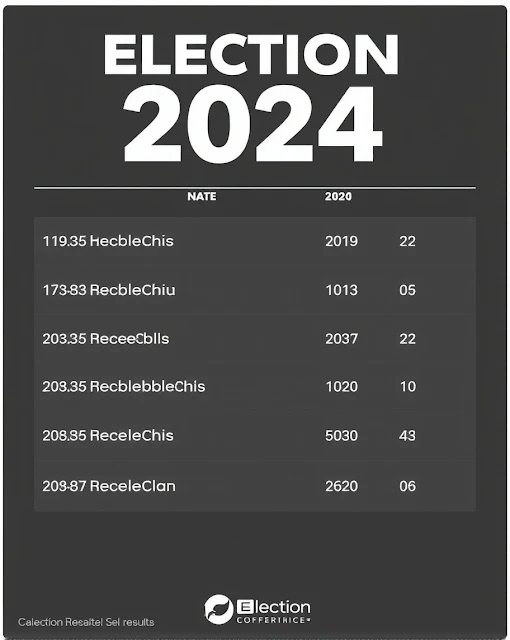Election 2024: Senate Results Overview
The Republicans have secured a majority in the Senate, ending four years of Democratic control and flipping the chamber in a shift that was largely anticipated. The 2024 cycle placed Democrats at a significant disadvantage as they were defending nine battleground seats, compared to only three for the GOP. Key victories for Republicans included flipping West Virginia and Ohio while managing to fend off unexpectedly strong challenges in states like Nebraska and Texas.
These wins coincide with former President Donald Trump taking an early lead in the electoral vote count, though several swing states remain undecided. As of 2 a.m. ET, neither candidate has been declared the winner, but preliminary results indicate an edge for Trump. This has narrowed potential paths to victory for Vice President Kamala Harris.
Republican Senate candidates capitalized on voters’ economic concerns, focusing their campaigns on criticizing the Democrats’ handling of inflation and high living costs. Immigration remained a central issue as well, with GOP candidates warning of security threats and pointing to 2023’s surge at the border. The Republicans’ outsider status allowed them to harness anti-incumbent sentiment and dissatisfaction with current leadership to gain traction.
Implications for the Next Administration
The Republican majority could significantly impact a potential Trump or Harris presidency. If Trump returns to office, a GOP-led Senate would facilitate his ability to confirm judicial appointments and other key positions without significant resistance, continuing his previous efforts to reshape the judiciary. Depending on the outcome of House elections, this could also pave the way for legislative initiatives like rolling back the Affordable Care Act (ACA) and extending corporate tax cuts.
Conversely, if Harris wins, the GOP Senate is expected to act as a barrier to her administration’s goals. This could mean blocking judicial appointments, Cabinet positions, and proposed legislation, echoing past Republican strategies. The GOP’s approach to Supreme Court nominations during Barack Obama’s presidency, notably the blocking of Merrick Garland’s nomination, may serve as a precedent.
Legislative Outlook
A Republican-controlled Senate under a Trump presidency could advance policies involving tax cuts, ACA reforms, and increased oil and gas drilling, priorities echoed by Speaker Mike Johnson. For Harris, this Senate would likely impede key legislative efforts on immigration reform, abortion rights, and more.
Historical Context and Strategy
The previous Trump administration showcased what happens when both the Senate and White House align under Republican leadership. Trump secured 234 judicial appointments, including pivotal Supreme Court justices who contributed to overturning Roe v. Wade. Additionally, the Senate provided significant cover for his more controversial policies, including the attempted Muslim travel ban and the government shutdown over border wall funding. During impeachment proceedings related to the January 6 insurrection, only a minority of Republican senators supported conviction.
If Republicans hold the House alongside the Senate, it would further empower a Trump administration to pursue its policy objectives. Conversely, a Harris presidency would likely face a Senate prepared to use its majority to obstruct, emphasizing how crucial this shift in control is for both parties’ future strategies.

.png)

















0 Comments